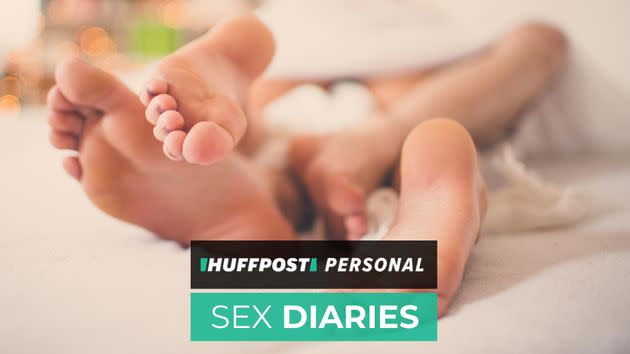Trying For A Baby While Self-Isolating Is More Complicated Than We Expected

You’re reading Sex Diaries, a HuffPost UK Personal series about how we are (or aren’t) having sex. To share your story, get in touch on ukpersonal@huffpost.com.
My husband and I have been trying for a baby for over two years now. I have endometriosis, and after an ectopic pregnancy and a miscarriage, opted to have the diseased tissue surgically removed in October, hoping to improve our chances. While everything healed, we were given a six-month wait before we could start trying again.
After six long months of trying to think of anything but babies (and rediscovering how annoying condoms can be), our wait was over. Our moment to start making love morning, noon and night was here.
Then came covid-19.
If I was religious, or superstitious, I might think this latest hurdle was a sign. When this all first happened and the world started shutting down, I briefly thought: Is there some higher being/force somewhere that doesn’t want us to conceive so much that they created a global emergency to stop us? But I’m not religious, superstitious or a complete narcissist, so I put that thought in the bin where it belongs.
The trouble is, I don’t have time to wait.
However, the situation has complicated the issue just a tad. For starters, we’ve had to have a hard think about the wisdom of even trying to get pregnant when we might not be able to get early pregnancy scans (especially important with my history), could potentially end up in an overcrowded hospital if things go wrong, and don’t really know where we’ll all be in nine months time. My scan, due this week, to check whether I’m ovulating properly, has of course been cancelled.
The trouble is, I don’t have time to wait. Endometriosis, while treatable, is incurable, and I’m aware that mine may start to grow back. After a call to our fertility clinic – closed for the foreseeable future – we decided to go ahead anyway. Women have babies in much worse situations and with much less available medical...


